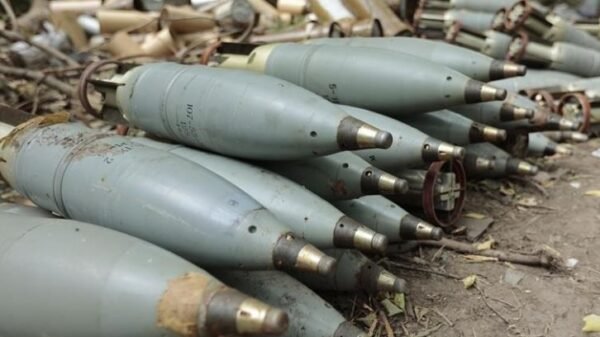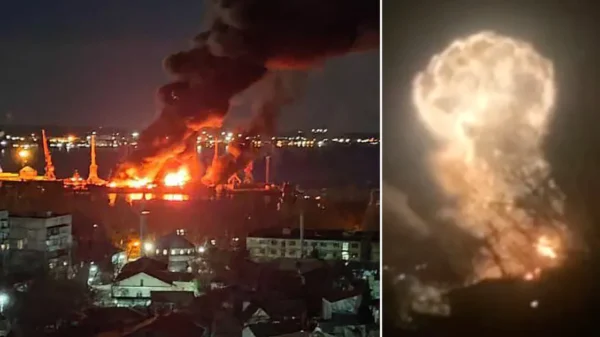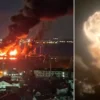Ukraine’s Economy Faces Lasting Disruption as War Alters Landscape
Amidst the tumult of Russia’s invasion of Ukraine in early 2022, architect Oleh Drozdov faced a critical decision: relocating his home and business from the embattled eastern city of Kharkiv to the safer confines of Lviv, over 1,000 kilometers away. As the conflict enters its third year, Drozdov’s architectural firm, Drozdov & Partners, finds itself on the cusp of a potential resurgence, navigating a landscape defined by adversity and opportunity.
“The storm has passed. While there are still challenges ahead, we are forging ahead,” remarked Drozdov, reflecting on his firm’s journey from a historic building in Lviv’s city center. In the outskirts of Lviv, signs of progress abound, with construction projects proliferating and industrial zones burgeoning.
Like many others, Drozdov’s firm has displayed resilience in the face of adversity. As one of the 19,000 businesses that have relocated within Ukraine since the invasion, Drozdov & Partners epitomizes the adaptability that characterizes the country’s wartime economy. Amidst the mass migration of businesses from east to west, new opportunities emerge alongside formidable challenges.
“The adaptability of businesses, coupled with support from partners and government initiatives, has fostered a transformation in Ukraine’s economy,” noted First Deputy Prime Minister Yulia Svyrydenko. Indeed, the economic landscape has undergone a seismic shift, with western regions experiencing a surge in entrepreneurial activity while eastern counterparts grapple with the devastation wrought by the conflict.
In the east, where the scars of war are painfully evident, towns lie in ruins, and cities like Kharkiv endure relentless bombardment. In stark contrast, western urban centers such as Lviv and Zakarpattia thrive, buoyed by an influx of new businesses and investments. The prospect of Ukraine’s eventual integration with the European Union fuels optimism in these regions, attracting foreign investments and spurring economic growth.
Despite these promising developments, challenges persist. Businesses contend with the specter of Russian attacks on critical infrastructure, while sectors such as energy grapple with the fallout of the conflict. However, signs of resilience abound, with the economy rebounding from the depths of recession and specific industries, like construction and defense, witnessing robust expansion.
Yet, amidst the economic revival, a pressing concern looms: a shortage of skilled workers. Millions have fled the country, and hundreds of thousands serve in the military, exacerbating labor shortages across various sectors. Drozdov, for instance, faces difficulties in recruiting staff for his architectural firm and educational endeavors.
Undeterred by these challenges, Drozdov remains committed to Ukraine’s reconstruction. He plans to launch a master’s program focused on rebuilding the war-torn east, underscoring a long-term vision of returning to Kharkiv when conditions permit. For Drozdov and countless others, the journey toward recovery is arduous but marked by resilience, determination, and an unwavering commitment to rebuilding a nation torn apart by conflict.










































Comment Template